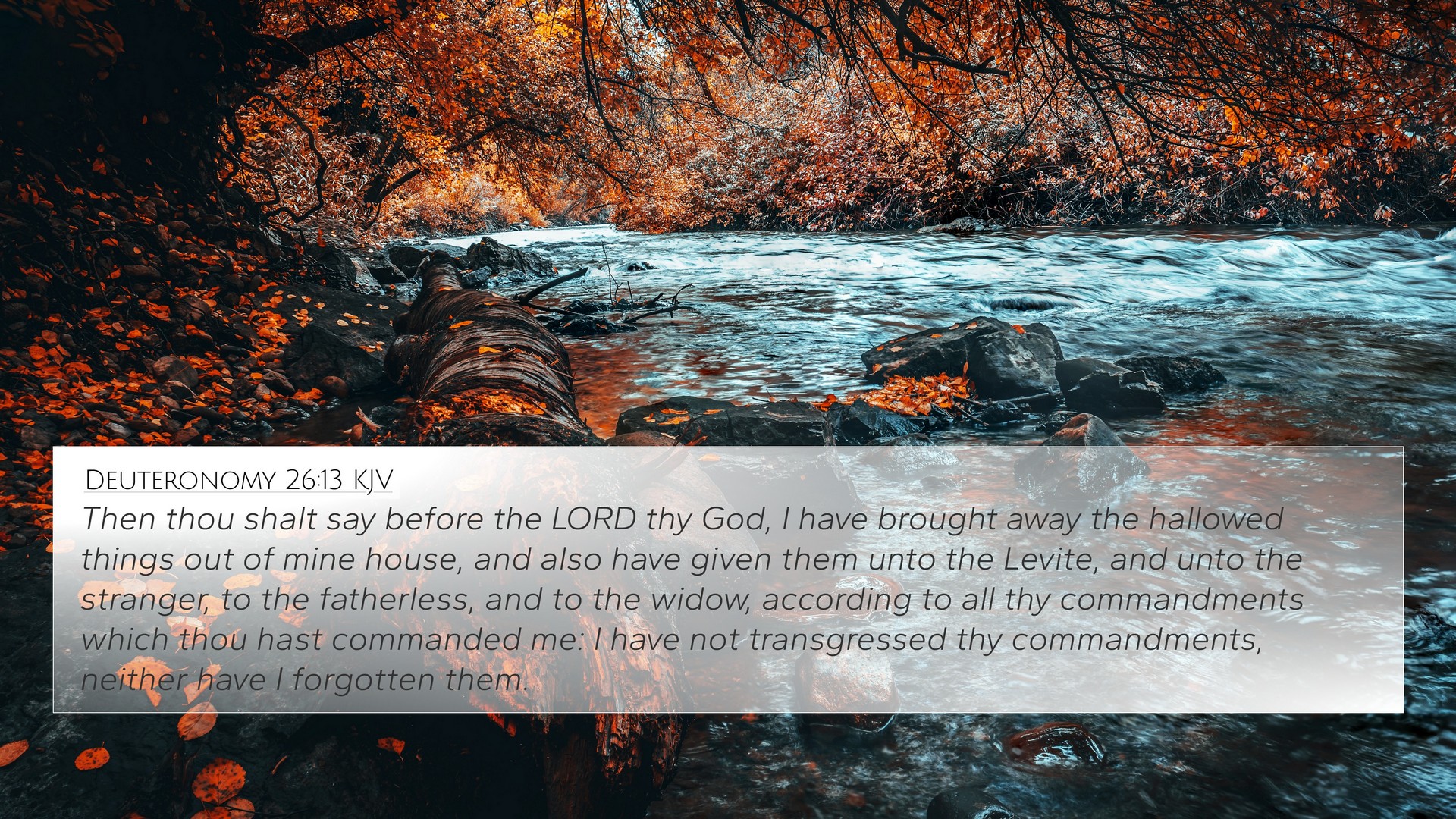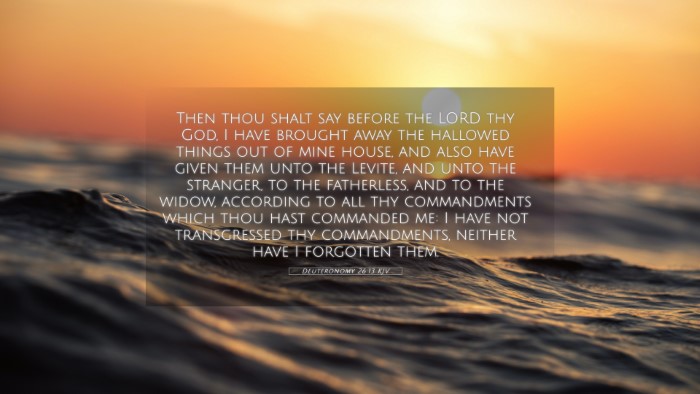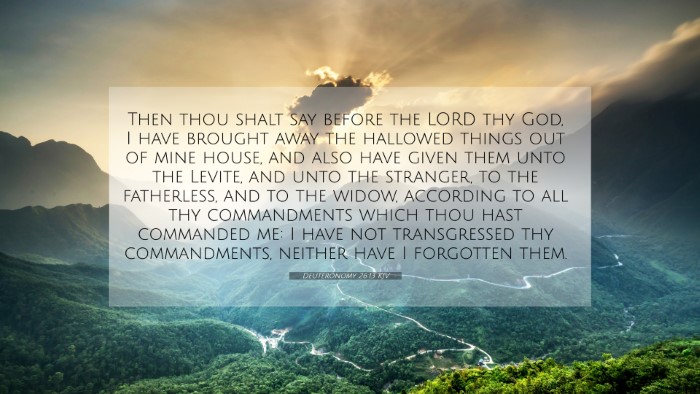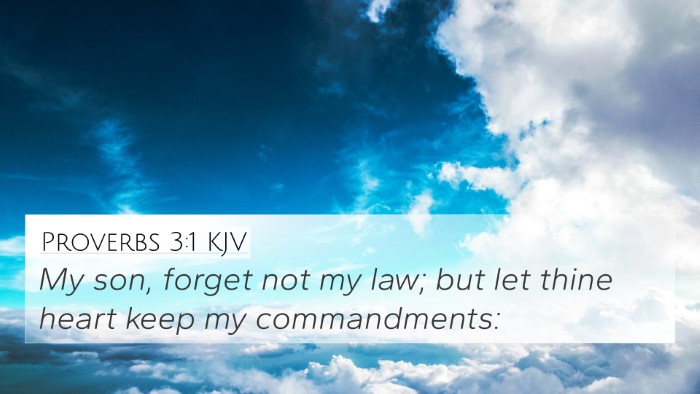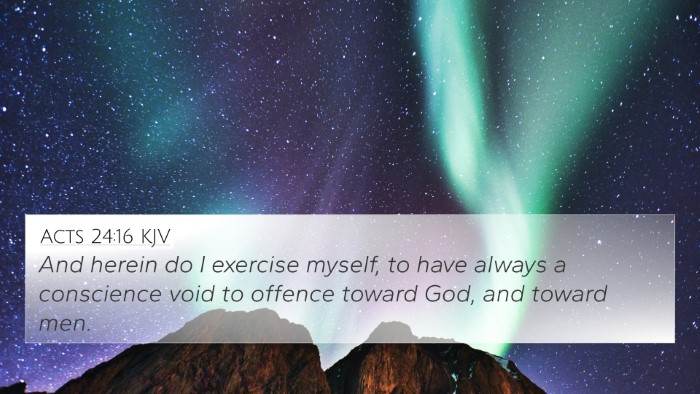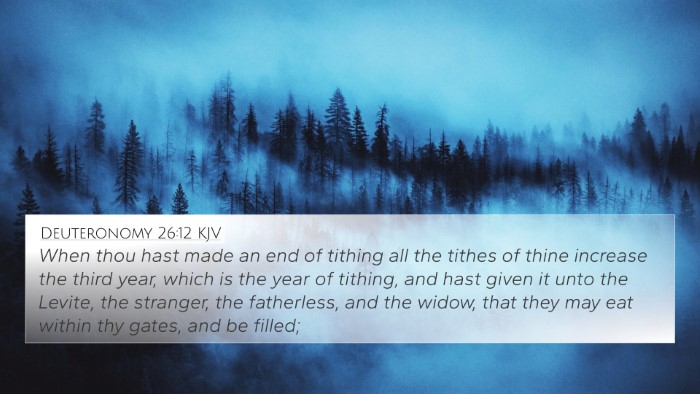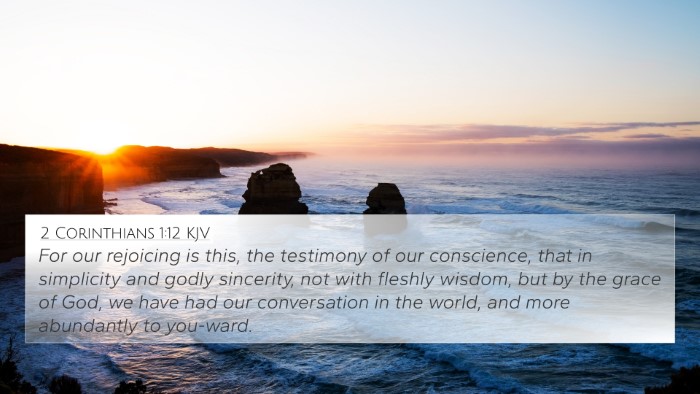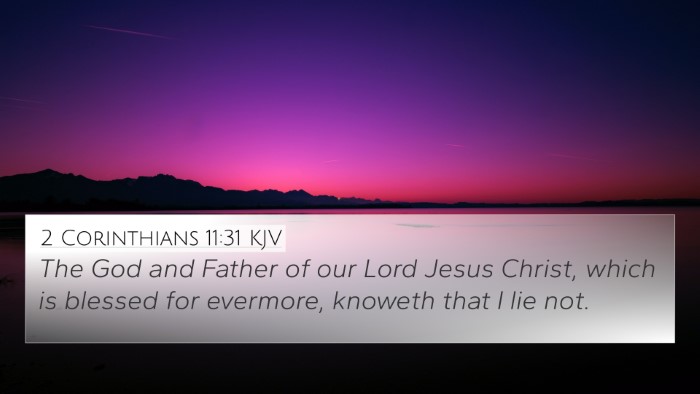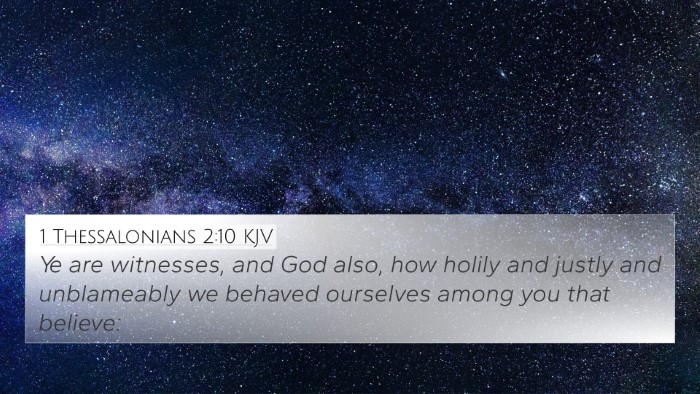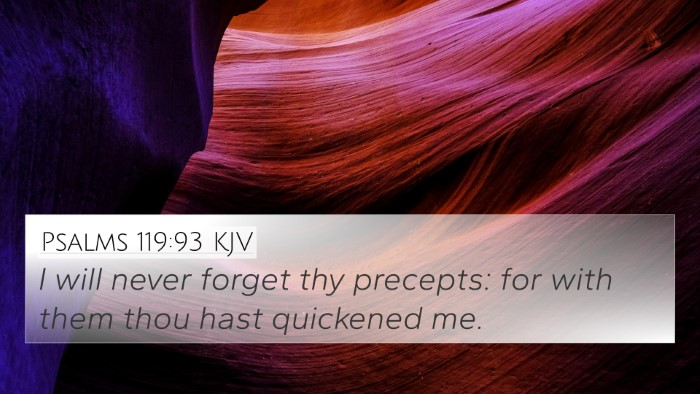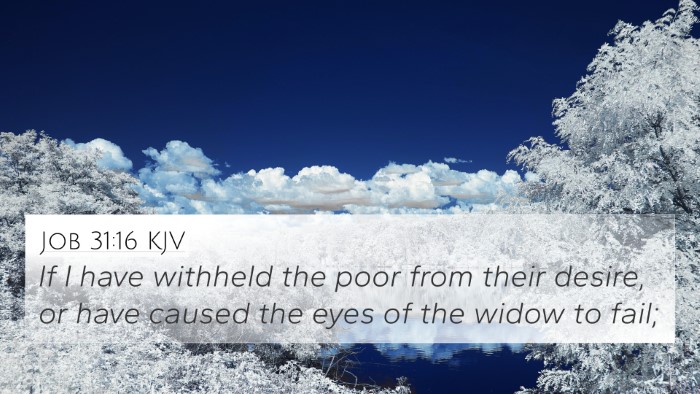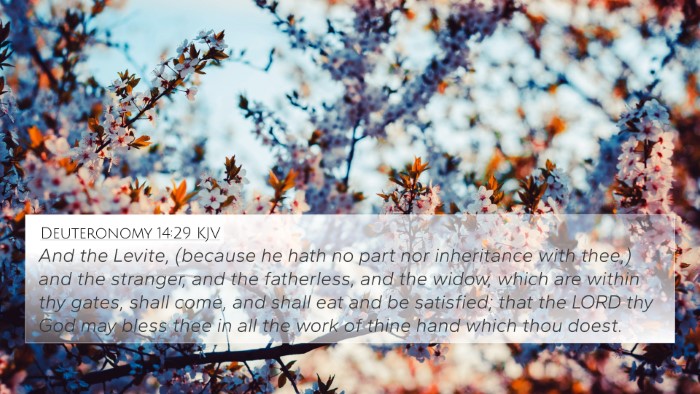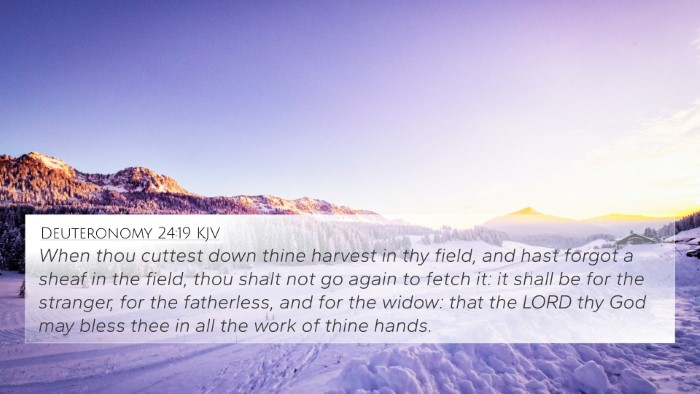Deuteronomy 26:13 - Summary and Interpretation
Deuteronomy 26:13 states:
"Then you shall say before the Lord your God: 'I have removed the holy tithe from my house, and also have given them to the Levite, the stranger, the fatherless, and the widow, according to all Your commandments which You have commanded me; I have not transgressed Your commandments, nor have I forgotten them.'"
Contextual Overview
In this verse, the Israelites are instructed on the proper declaration of the tithe before God. This practice serves as a reminder of their obligations and God's faithfulness. It reflects a covenant relationship where the giving of tithes is not merely a religious duty but a response to God’s blessings.
Commentary Insights
Utilizing insights from esteemed public domain commentators, we can unravel the deeper meanings of this verse.
Matthew Henry's Commentary
Matthew Henry elucidates that this verse underscores the importance of acknowledging God's provisions and stipulations regarding the tithe. The act of declaring the removal of the holy tithe symbolizes a public confession of faithfulness to God's commands. It is essential for the worshippers to realize that their resources and blessings are ultimately from God and should be shared generously with those in need.
Albert Barnes' Notes on the Bible
Albert Barnes highlights that this verse serves as a self-assessment for the individual. By reciting the words, they affirm their obedience and submission to God's laws. Moreover, Barnes notes the implications of social responsibility toward the less fortunate: the Levite, the stranger, the fatherless, and the widow. It instills a sense of communal care and stewardship required by God’s commands.
Adam Clarke's Commentary
Adam Clarke emphasizes the cultural and theological significance of the tithe. He points out that the act of tithing is not only about monetary contributions; it embodies a heart of gratitude and acknowledgment of God’s sovereign provision. Clarke further discusses the importance of the recipients of the tithe—strengthening community bonds and fulfilling divine justice.
Detailed Exegesis
This verse reveals several key themes:
- Obedience: The declaration signifies adherence to God's commandments.
- Gratitude: Reminding the worshipper of God’s generosity and how their own tithes are a reflection of gratitude.
- Community Responsibility: The directive enhances social equity by ensuring that vulnerable groups receive support.
- Covenantal Relationship: Reinforces the agreement between God and His people, denoting reciprocal responsibilities.
Bible Cross-References
To enrich the understanding of Deuteronomy 26:13, consider the following related verses:
- Leviticus 27:30-33: Discusses the regulations concerning tithes.
- Malachi 3:10: Encourages bringing the whole tithe into the storehouse.
- 2 Corinthians 9:6-7: Addresses the attitude with which believers should give.
- Luke 10:25-37: The parable of the Good Samaritan highlights caring for the neighbor.
- James 1:27: Defines pure religion as caring for orphans and widows.
- Psalms 41:1: Blessed is he who considers the poor.
- Exodus 22:22-24: God's commands concerning the treatment of orphans and widows.
Connections Between Biblical Themes
Deuteronomy 26:13 is interconnected with various biblical themes:
- Thematic Bible Verse Connections: It connects with the themes of generosity and social justice throughout scriptures.
- Comparative Bible Verse Analysis: When analyzing the New Testament, the principles of giving and caring for others are reiterated in passages such as Acts 2:44-45.
- Inter-Biblical Dialogue: This verse engages in dialogue with passages like Matthew 25:35-40, where acts of kindness are equated with service to Christ Himself.
Tools for Cross-Referencing Based on Deuteronomy 26:13
Understanding the breadth of this verse can be enhanced by employing various tools:
- Bible Concordance: Allows for clear identification of keywords and themes throughout the Bible.
- Bible Cross-Reference Guide: Facilitates the exploration of verses that share similar messages.
- Comprehensive Bible Cross-Reference Materials: Expands understanding by contextualizing scriptures within the wider biblical narrative.
Conclusion
Deuteronomy 26:13 offers profound insights into the Israelite’s obligations towards God and the welfare of their community. By engaging in self-reflection and obligation acknowledgment through tithing, believers can draw closer to God while fulfilling their social responsibilities. This verse illustrates the integral connection between worship and ethical conduct, affirming that true devotion involves both love for God and one’s neighbor.
